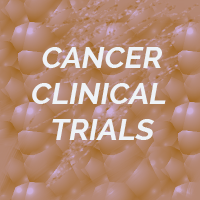 Clinical trials involve research studies in people such as cancer patients. Cancer research is conducted in cancer clinical trials. Learn about cancer clinical trials, especially for cancer patients in their treatment journey.
Clinical trials involve research studies in people such as cancer patients. Cancer research is conducted in cancer clinical trials. Learn about cancer clinical trials, especially for cancer patients in their treatment journey.
Laboratory Cancer Research
Basic research occurs in the laboratory through preclinical testing in cell lines, tissues, and animal models of human cancers. Tests in animals analyze a drug’s chemical properties, toxicity, potential anti-cancer activity, and more. Before human testing, the FDA must approve an Investigational New Drug (IND) application with laboratory data indicating preliminary safety and efficacy through the drug’s structural formula, animal test results, and manufacturing information.
Cancer Clinical Trials and the FDA
Clinical trials are research studies designed to answer scientific questions about therapeutic approaches in people. The majority of medical treatments assessed through clinical trials are in the form of drugs. This applies to clinical trials in cancer drugs. FDA reviews the safety and efficacy of research results for new drugs through a New Drug Application (NDA) or a Biologics License Application (BLA). An increasing amount of cancer clinical trials are testing new combinations of drugs or new dosing schedules of drugs already approved by FDA for a particular indication. An indication is a term for what, how, and whom the intervention works as supported by scientific data acquired through clinical trials. FDA approves indications when their potential benefits outweigh known risks. People evaluate results of cancer research through cancer clinical trials in a similar way through comparing the benefits versus the risks.
Types of Trials
Studies testing potential cancer treatments such as cancer drugs through chemotherapy, biologics, immunotherapy, target therapies, surgical procedures, radiation, and other therapies are called cancer treatment trials. Other types of studies evaluate new approaches to cancer in screening, diagnosis, genetics, supportive care, and prevention. Many of these other trials pose less risk to patients and might include people without disease. Prevention trials study interventions such as cancer drugs, lifestyle modification, complementary and alternative therapies, and other approaches that might prevent cancer.
Purpose and Design of Trial Phases
Most cancer research studies are conducted in a progressive series of steps called phases. Each phase has distinct research goals. Progression to the next phase requires success related to the research goal with the benefits being greater than the risks they present to patients.
Primary Research Goals in Clinical Trials Testing Therapies
Phase I—Is the therapy safe and other specifics including dose and schedule?
Phase II—Does the therapy work, including with various approaches?
Phase III—How does the therapy compare to standard care?
Phase I Trials
Specific assessments vary with each Phase I Trial and especially between chemotherapy versus immunotherapy and/or target therapies.
- Assesses safety and identifies potential adverse events
- Evaluates dose and schedule
- Includes for pharmacokinetic studies to assess the activity of therapies in the body over a period of time, including the processes by which therapies are absorbed, distributed in the body, localized in the tissues, and excreted
- May include pharmacogenetics and pharmacogenomics to study how a person’s genes affect the way he or she responds to therapies to aid in identifying the best therapies and dose
- Assesses when and how the therapy is safest when given to people such as once per week versus once every two weeks, and larger dosages all at once versus smaller dosages given over time
- Phase I studies only enroll a small number of patients and take place at few locations
Phase II Trials
- Assesses clinical activity, and namely whether or not the intervention is effective against a disease
- Collects more information about safety and efficacy
- Phase II studies usually enroll about 100 participants and may be available in more locations
- Evaluates how the therapy is best developed (such as with immunotherapy)
Phase III Trials
- Compares the effectiveness of the new approach with standard care
- Continues to evaluate safety and dose
- Treatment assignment to either the new approach or standard care may occur through a process called randomization where patients are assigned to a treatment arm. Randomization helps reduce unknown factors from influencing study results.
- To further diminish the possibility of bias, these studies can be blinded where the intervention is not identified to patients and sometimes investigators.
- A placebo, or inactive substance, might be given as part of a treatment arm to help measure treatment comparisons. Placebos are rare in cancer trials and only given when no effective treatment is known for a disease, or investigators need to make the treatment arms appear the same and can do that by providing an inactive substance without compromising care.
- Trial endpoints, or outcomes to measure if the intervention is effective, in Phase III studies often evaluate survival, tumor reduction, symptom relief, and quality of life.
- Phase III studies enroll hundreds and sometimes over thousands of participants at many locations.
Phase IV Trials
- Evaluates further the long-term safety and effectiveness of a treatment.
- Occurs after the treatment has been approved for standard use.
- Phase IV studies enroll hundreds and sometimes over thousands of participants at many locations.
- Phase IV studies are rarely done.
For More Information





